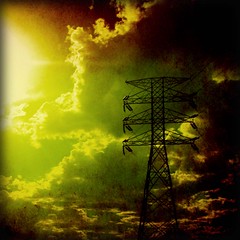If you've read classic hardboiled or contemporary thrillers, you've almost certainly run across the amnesiac-protagonist trope: A main character awakens with no memory of his past doings or present circumstances and must muddle his way along awaiting revelation. It's an old genre convention, one that feels usually feels hackneyed. So when I heard that ALA-award-winner Brian Evenson used it in his novel Immobility, I was skeptical. But Evenson shakes things up by switching his setting from the typical mean streets to a ravaged post-apocalyptic landscape where surprising developments soon become the norm.
Josef Horkai only knows his name because the technician overseeing his emergence from cryogenic sleep told it to him. That is, he told it after Horkai tried to strangle him. Horkai doesn't know why he did that. He doesn't know a lot of things, like why everyone seems to live underground or why his legs won't work. A man called Rasmus who seems to lead a rag-tag band of scavengers tell him that he's been frozen for thirty years, that the world suffered a Kollaps, that no one can survive for long in the irradiated outside. No one except Horkai. That's why they woke him. They need him to travel to a distant installation and recover a seed-filled cylinder from cold storage. How can he make the trip when his own legs won't carry him? Well, he'll ride two mules. Not animals, since the Kollaps killed them all. Instead, two men will carry him, men bred specially for the purpose, men who won't survive the trip out and back. As Horkai traverses the devastated landscape, he'll learn more about what sets him apart -- and exactly which of Rasmus' claims are lies.
On a plotting and stylistic level, Immobility works. Evenson structures the book like a strand of pearls, hard-bitten prose stringing together encounter after encounter for Horkai, some visceral, some surreal, some revelatory, all engaging. But the thematic content will likely cause division. As far as bleakness goes, it's neck-and-neck with Cormac McCarthy's The Road, perhaps even edging it. Yet where McCarthy's book turned a corner in the eleventh hour to focus on the divine stamp each individual bears, Immobility remains stubbornly hopeless throughout. "Finger of God," Horkai thinks when a character proffers the Almighty as an explanation for a near-miraculous state. "Not [expletive] likely. More like the finger of the Devil. Or, even worse, no finger at all." Not only does Horkai think he's caught in a story for which he has no explanation, Evenson appears to share the sentiment. What caused the Kollaps? Does humanity deserve to survive it? Could Horkai, with his ability to withstand the elements (among other spoilery things), represent some sort of transhuman advancement in the species? No one seems to know. This combination of compositional excellence and philosophical pessimism comes to a head at the conclusion, an ending that adds beautiful symmetry to the narrative and a crushingly depressing denouncement. Immobility is a worthwhile read if you can accept that it never moves toward hope.
(Picture: CC 2010 by lavagirl66; Hat Tip: Josh Vogt)
Monday, May 7, 2012
Subscribe to:
Post Comments (Atom)



5 comments:
I thought Donald Westlake did an excellent job with this in MEMORY. No post-apocalyptic scenario but it worked well.
Your criticism reminds me of a quote by Cathrynne Valente. After explaining that her books for children aren't going to be purely "a parade of sunshine and rainbows" (because she aims to provide truth and wisdom, two rare and difficult commodities), she goes on most amusingly:
"--and I will not make [my book] a grimdark cautionary tale about the essential terribleness of everything."
I laughed when I saw that line. A lot. I think I found a new award for a certain type of book-I-don't-like: The Grimdark Essential Terribleness Award.
(I just read it today, and the blog entry is actually really good. http://yuki-onna.livejournal.com/676701.html)
Patti,
I need to read Memory. I like Westlake a lot, and it's been a while since I've picked up anything from him.
CR,
Great quote. Although to be honest, Evenson has more philosophical depth than that. There's a reason why he quotes from Samuel Beckett's Endgame in the beginning. But that philosophy is likely to conflict with a lot of readers' beliefs, so I thought it wise to mention it.
Post a Comment